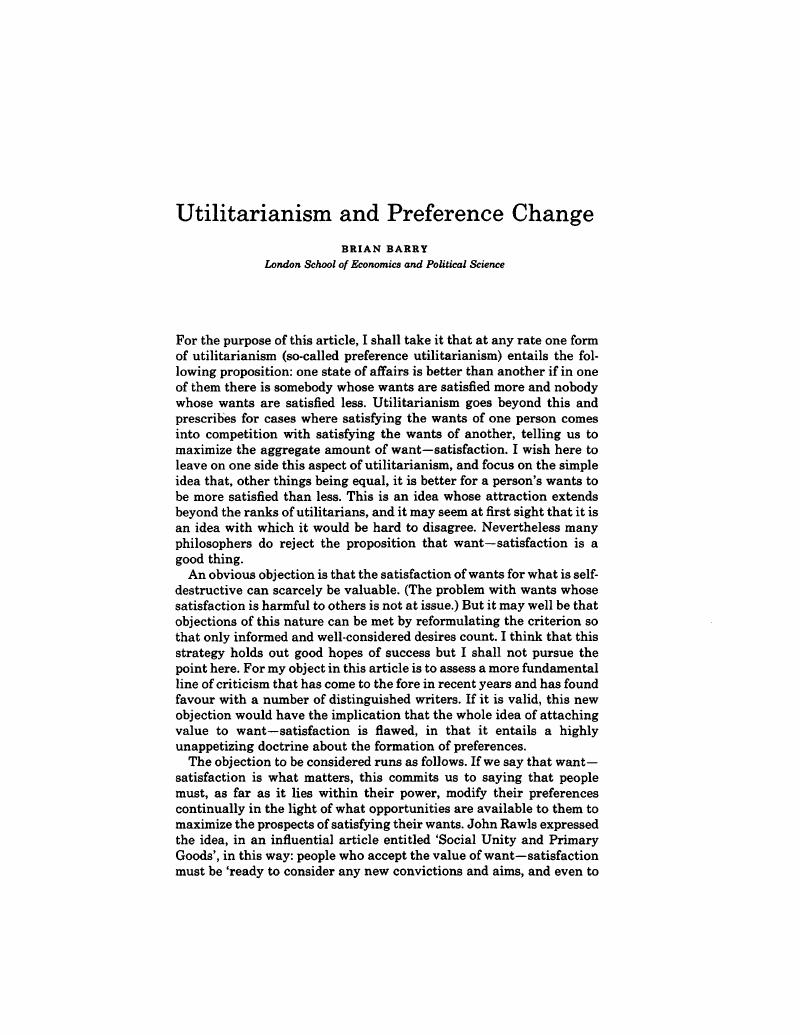Article contents
Utilitarianism and Preference Change
Published online by Cambridge University Press: 26 January 2009
Abstract

- Type
- Discussion
- Information
- Copyright
- Copyright © Cambridge University Press 1989
References
1 Rawls, John, ‘Social Unity and Primary Goods’, in Utilitarianism and Beyond, eds. Sen, Amartya and Williams, Bernard, Cambridge, 1982, pp. 159–85; quotation from p. 181.CrossRefGoogle Scholar
2 In the film ‘O God, You Devil’, an unsuccessful songwriter makes a pact with the Devil (George Burns) to make him a success. What actually happens is that he is put into the body of a very successful rock star whose soul has just been repossessed, and he then takes up this rock star's career. Meanwhile somebody else (so, at any rate, we are urged to conceptualize the situation) takes over his own life where he left it off, living in his house with his wife and so on. The songwriter complains that he has not got what he bargained for, and in my view he is absolutely right. What he wanted was for everything to be the same except that his songs would be hits. What he got was something entirely different from this.
3 I am indebted to G. A. Cohen for this formulation of the point at issue.
- 10
- Cited by


